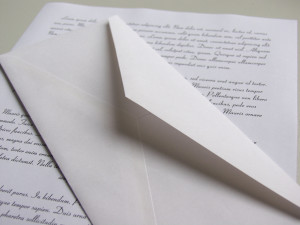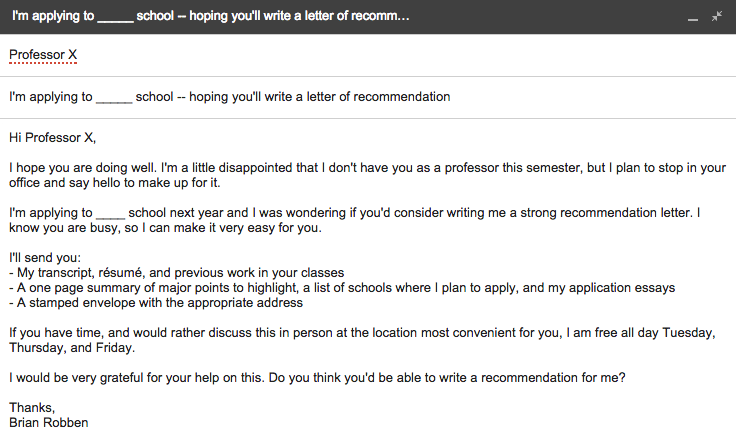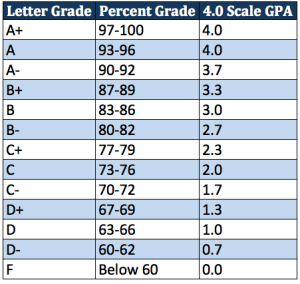Letter Of Recommendation Overview
Grad schools request letters of recommendation because they want to know more about you than just your grades or test scores. The admissions committee looks at how well you would fit in at their school, and how well you could compete academically.
So, the letter gives them another perspective that helps them understand if you would be a pleasure in the classroom around their professors and students, or a distraction.
Letters of recommendation are important in the admissions process (for everything you need, check out 15 grad school application tips). They can sometimes determine whether an applicant is accepted or rejected, so don’t take this process lightly.
But don’t worry, you have far more influence on your letter of recommendation than you think. Your preparation and communication can make all the difference.
[activecampaign form=3]
Preparing Ahead Of Time
Ideally, start planning two to three years in advance. This gives you enough time to forecast who you’re going to ask.
It also presents the advantage of scheduling multiple classes with the same professor, so they can get familiar with you. And you won’t have to worry about one of your professors going on a sabbatical or only teaching graduate courses, because you have enough time to adjust.
When you have your future reference in class, do all that you can to perform above and beyond expectations. If your homework is an outline, then write an outline and finish a rough draft. If you think the class would benefit in some way that the professor may not have considered, bring this thought to your professor and see what he or she thinks.
A great way to build a relationship and show your suitable skills for graduate school is to have a professor sponsor a senior thesis or independent study. You could ask the professor what topics they might need help researching, or you can come up with your own topic and see if the professor is interested.
If you haven’t thought about potential references, and you only have one year left before you graduate and go to grad school, you’re behind the ball. But, you can still help your letter of recommendation. Do your best to really get to know and impress professors. Go to office hours, stay after class, and excel academically.
For those of you who graduated and are working before grad school, it’s important to stay in contact with your professors. Email them a couple times a year about what you’re doing and your future plans. If you visit campus, try to meet up with them for a little.
And at work, do more on a project than what your boss asked. Show up early and leave late. Get to know upper-level management on a personal level. These actions will serve you well when you need a letter of recommendation.
Finding Quality References
You want to find references who know you well and are impressed with your work. Committee members can tell when recommendation letters are general, and those letters don’t help.
Avoid the mistake of looking for a famous name, unless this person has had many experiences with you and knows your work. The admissions committee doesn’t value your family connections as much as they care about hearing from someone who is enthusiastic and knowledgeable about you as an applicant.
Also, if you go to a large state school and only connected with your teaching assistants rather than instructors, then it’s better to get a specific letter from a teaching assistant than a generic letter from an instructor. An unfamiliar writer can’t help you.
If you’re going straight to grad school from undergrad, find at least one professor in your major. Otherwise, it’s suspicious to the admissions committee. Then, you want to find other professors or managers that you impressed or built a relationships with, which is why planning ahead is helpful.
If you’ve graduated, it’s a better idea to ask your manager that you work with everyday, instead of your CEO who barely knows you. If you’ve recently graduated, then it is still appropriate to ask a professor that you connected with.
Asking For A Letter Of Recommendation
Professors are extremely busy as they juggle teaching, grading, and other responsibilities. So, make this process as easy as possible for them. Give them two to three months in advance. Your professor will be grateful that they aren’t under pressure and have time to put together a carefully considered letter. If you’re out of school, the same information applies to your boss at work.
When asking for a letter of recommendation, do your best to ask in person (if you can’t, an email is acceptable). Prepare and practice what you’re going to say. Something like,
I’m serious about going to _____ school, and I’ve been researching it. A major factor in the admissions process is detailed recommendation letters about me, how I think, and my quality of work. I believe you would be an awesome fit to write a great recommendation letter. If you are willing, I will provide you with the necessary materials, as well as a one page document with comments and my participation to refresh your memory. I will make this process as convenient for you as possible. Could you write a strong letter of recommendation?
Besides rehearsing your request, present a folder to your professor or manager that contains the printed version of the necessary materials and bonus materials (see below). Your organization can go a long way in impressing the writer. Giving the bonus materials will help your professor craft a detailed, strong recommendation.
Necessary materials:
– transcript
– résumé
– previous work in the teacher’s class (preferably with comments and a grade, if not then print off a new copy), or previous work at the company with results
– stamped envelope with address already written
Bonus materials:
– application essays
– short summary of what you would like included in the recommendation letter
– short summary of what schools you’re applying to and why
If you are forced to email based on circumstances, then write something like the email below.
If a potential reference back pedals and gives off an uneasy response, don’t force it. This means that they wouldn’t give you a strong letter of recommendation. Go back to the drawing board.
Follow Up
To avoid a potential disaster where your letter of recommendation is forgotten, make sure to follow up. A good time frame is about a month after they agreed to write the letter of recommendation.
Don’t come off as overbearing, but just send a friendly reminder that you need the letter submitted in the next month. In the scenario that the professor has other requests for letters of recommendation, you also remind them that your letter is a top priority based on your preparation and follow up.
Waive Your Right to Read The Recommendation Letter
I strongly recommend that you waive your right to read the letter of recommendation. This way, the letter holds more weight to the admissions committee because the writer can be completely candid.
Otherwise, if the instructor or manager knows you can see the text, the perception is that the letter of recommendation will be less honest and less complete about you as an applicant. And if you’re afraid what this person might say, then you know that you need to find a new reference.
Thank You Gesture
Always send a thank-you email after your letter of recommendation is sent. You could go further and ask them to coffee to discuss how to narrow down your list. (Hint, that might be smart.)
Of course, when you officially decide on a school, it is only polite to let them know and thank them one last time. You might even build a professional relationship through this recommendation process that pays future dividends.
And don’t forget about paying for this extra schooling. Check out this post on how to fund graduate school to borrow the least amount of money possible.
[activecampaign form=3]





